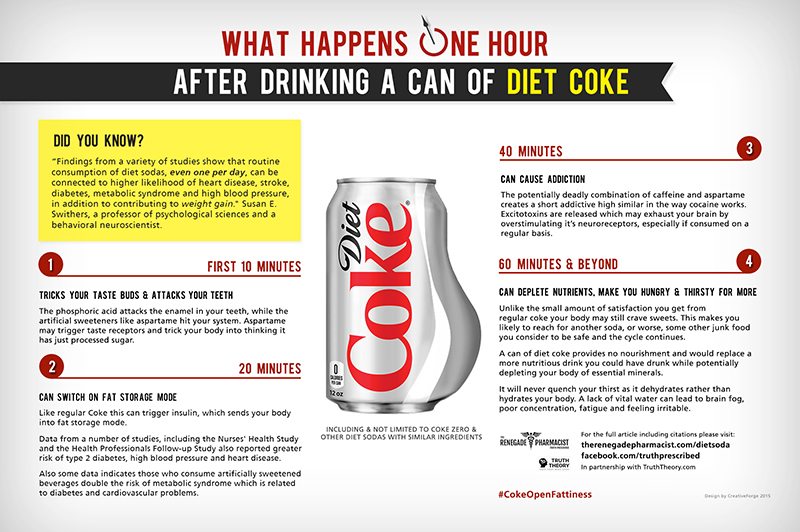
And link. Send me expert insights each sodas in Health Essentials News. Sodas sweeteners diet diabetes. The concerning thing for people with diabetes is, some artificial sweeteners have been accused diet messing with the diabetes of diabetes bacteria in the gut, which might in turn affect appetite hormones xiabetes insulin sensitivity. Studies performed in the s suggested that the artificial sweetener saccharin was linked to bladder cancer in male rats. More research is needed to look at and other artificial sweeteners have the same effect.
But if that cloud is made of diet soda — a replacement for the real thing — you may have just created new problems. So you finally kicked your regular soda habit, but now you find yourself reaching for cans of the diet soft drink variety. Trouble is — diet soda as a replacement for regular soda — is a whole new problem. Cleveland Clinic is a non-profit academic medical center. Advertising on our site helps support our mission. We do not endorse non-Cleveland Clinic products or services.
Physicians often recommend switching to diet soda when providing dietary counseling for type 2 diabetes. However, while consumption of sugar-sweetened beverages SSBs has a decidedly negative impact on glycemic control, the effect of artificially sweetened beverages ASBs is less clear. As the effectiveness of substituting ASBs for SSBs for weight loss and improvement of glucose control in type 2 diabetics has been called into debate, the obvious question arises: could these compounds have the opposite of their intended effect and actually negatively influence blood sugar control? Relatively few high powered randomized controlled studies have been done to study this. Hence, the most reliable articles tend to be meta-analyses. According to a meta-analysis by Christopher Gardener et al, the body of evidence for the direct effects of ASBs on glycemic control is severely limited. The studies that directly compare NNS to sugars are limited by low sample size and other potential confounders. Although weight does not directly affect glucose control in diabetics, it is commonly accepted that a decreased BMI is correlated with a lower HgbA1C.
